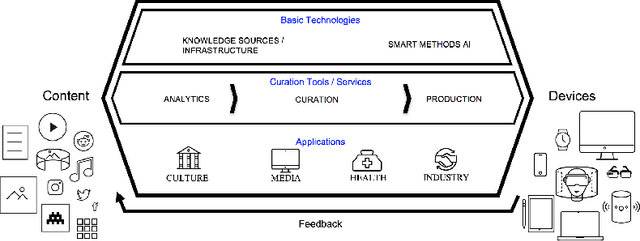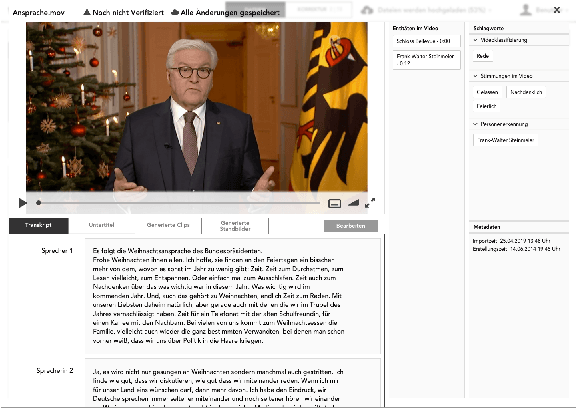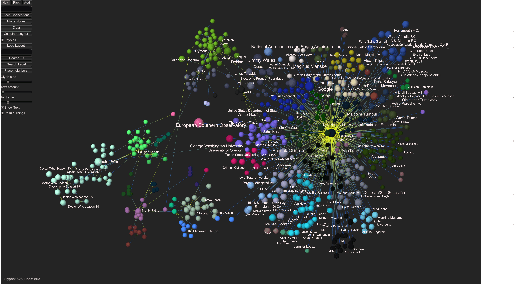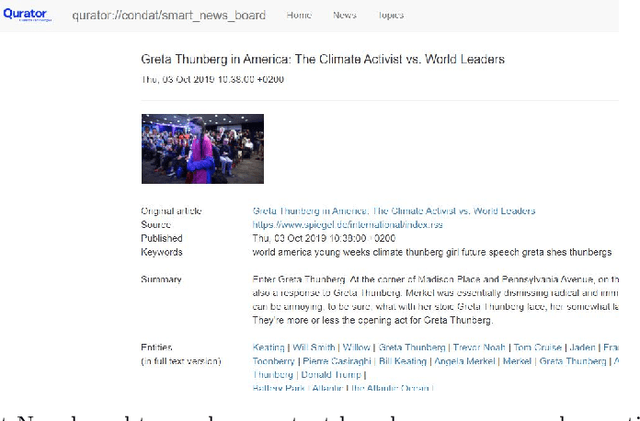Lydia Pintscher
Schema Generation for Large Knowledge Graphs Using Large Language Models
Jun 04, 2025



Abstract:Schemas are vital for ensuring data quality in the Semantic Web and natural language processing. Traditionally, their creation demands substantial involvement from knowledge engineers and domain experts. Leveraging the impressive capabilities of large language models (LLMs) in related tasks like ontology engineering, we explore automatic schema generation using LLMs. To bridge the resource gap, we introduce two datasets: YAGO Schema and Wikidata EntitySchema, along with evaluation metrics. The LLM-based pipelines effectively utilize local and global information from knowledge graphs (KGs) to generate validating schemas in Shape Expressions (ShEx). Experiments demonstrate LLMs' strong potential in producing high-quality ShEx schemas, paving the way for scalable, automated schema generation for large KGs. Furthermore, our benchmark introduces a new challenge for structured generation, pushing the limits of LLMs on syntactically rich formalisms.
Graph-Linguistic Fusion: Using Language Models for Wikidata Vandalism Detection
May 23, 2025



Abstract:We introduce a next-generation vandalism detection system for Wikidata, one of the largest open-source structured knowledge bases on the Web. Wikidata is highly complex: its items incorporate an ever-expanding universe of factual triples and multilingual texts. While edits can alter both structured and textual content, our approach converts all edits into a single space using a method we call Graph2Text. This allows for evaluating all content changes for potential vandalism using a single multilingual language model. This unified approach improves coverage and simplifies maintenance. Experiments demonstrate that our solution outperforms the current production system. Additionally, we are releasing the code under an open license along with a large dataset of various human-generated knowledge alterations, enabling further research.
QURATOR: Innovative Technologies for Content and Data Curation
Apr 25, 2020



Abstract:In all domains and sectors, the demand for intelligent systems to support the processing and generation of digital content is rapidly increasing. The availability of vast amounts of content and the pressure to publish new content quickly and in rapid succession requires faster, more efficient and smarter processing and generation methods. With a consortium of ten partners from research and industry and a broad range of expertise in AI, Machine Learning and Language Technologies, the QURATOR project, funded by the German Federal Ministry of Education and Research, develops a sustainable and innovative technology platform that provides services to support knowledge workers in various industries to address the challenges they face when curating digital content. The project's vision and ambition is to establish an ecosystem for content curation technologies that significantly pushes the current state of the art and transforms its region, the metropolitan area Berlin-Brandenburg, into a global centre of excellence for curation technologies.
 Add to Chrome
Add to Chrome Add to Firefox
Add to Firefox Add to Edge
Add to Edge